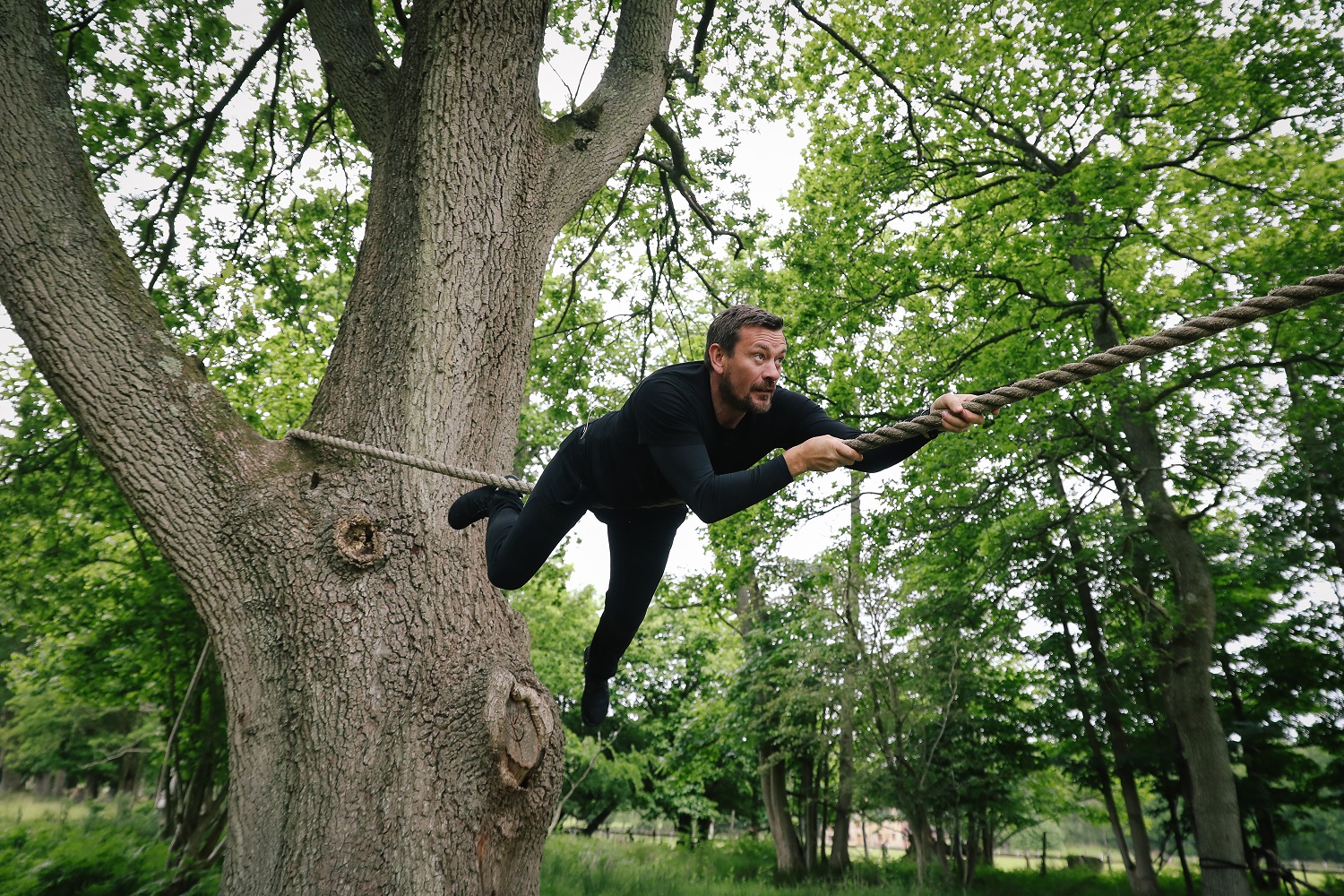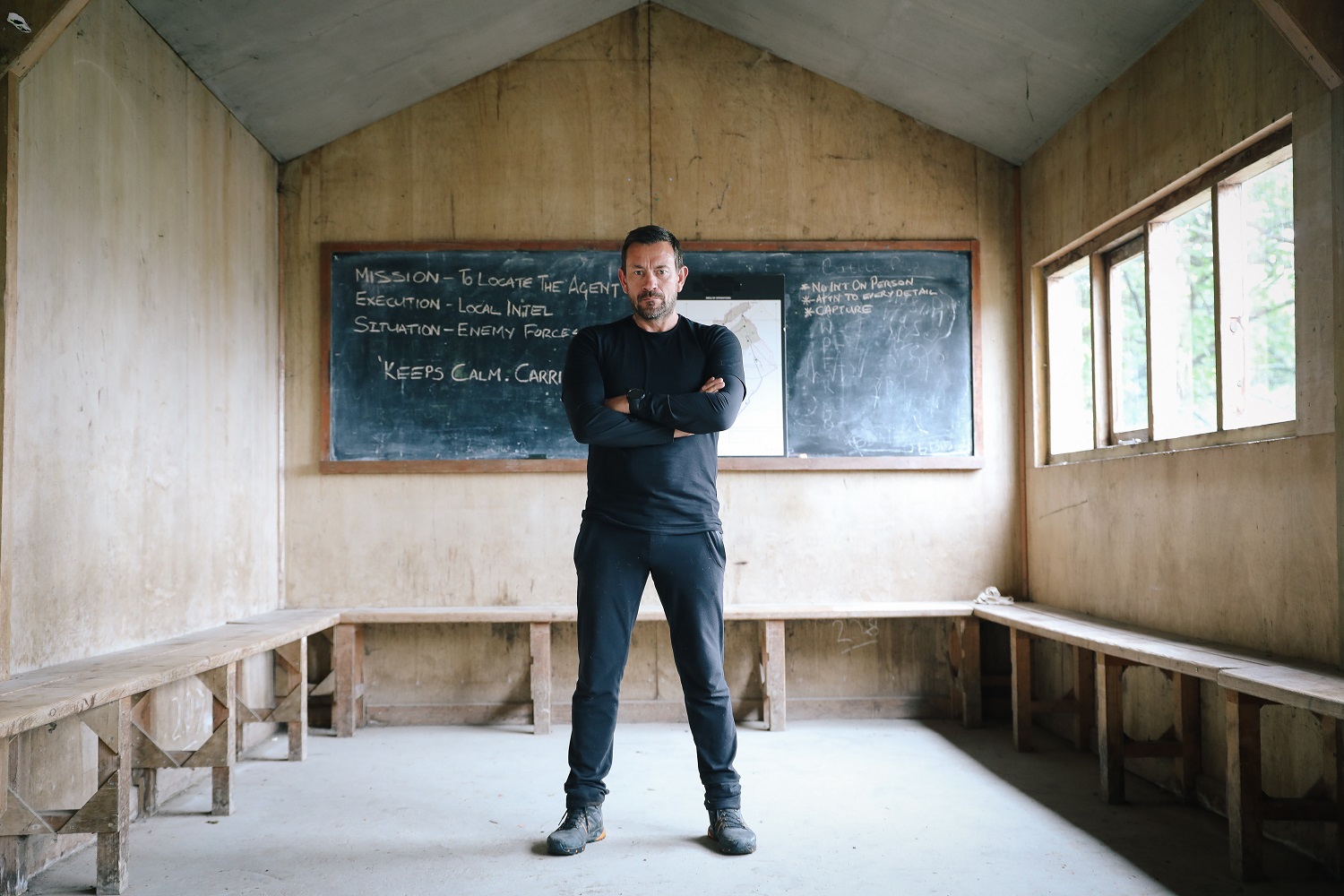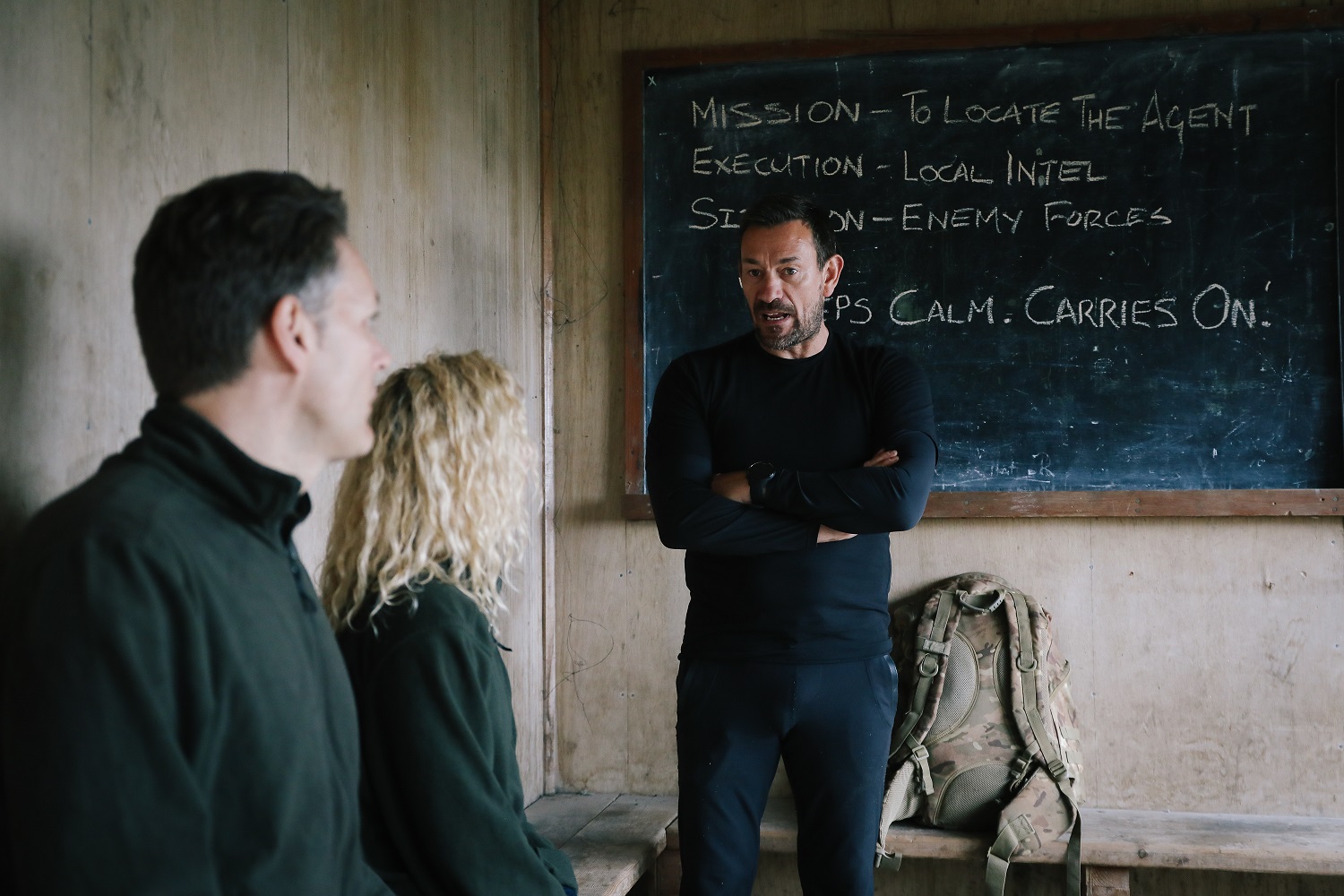‘SAS: Who Dares Wins’ star Ollie Ollerton on why men struggle more with mental health issues
Ollerton also opens up about what he believes masculinity looks like in 2019
By Steve Brown
Male suicides have consistently accounted for approximately three-quarters of all suicides in the UK since the mid-1990s.
Around 5,821 people aged 10 and over died by suicide in 2017, a decrease from 5,965 deaths in 2016.
Last year, according to Samaritans, deaths by suicide rose by 11.8 per cent in the UK and the charity reports that men are three times as likely to die by suicide than women.
According to the Mental Health Foundation, evidence suggests that people in the LGBT community are more likely to experience a range of ailments, including depression, suicidal thoughts, self-harm and alcohol and substance misuse, all of which can be avoided with the proper support and care.
Now, SAS: Who Dares Wins star Ollie Ollerton has opened up about struggling with his own mental health issues, why men still struggle to open up about mental health and offers advice for how people can deal with the daily grind.
Whether it’s financial, health or work-related pressure, each day people face the challenges and hurdles associated with everyday life. While this isn’t a visible, SAS-level of stress, it has a massive impact on wellbeing and mental health. Do you have any advice and recommendations for dealing with the daily grind?
I think, firstly, it’s crucial to try to analyse and fully understand what the core triggers of each individual stress point are.
Often, we feel most stressed when we’re facing uncertain or foreign territory, so it’s very important that we can bring everything into perspective, strip away all of the little details that don’t truly matter and focus in on what the two or three main points of our stress are.
Breathing can be key here; often stress can be removed almost immediately by focusing on breath control.

New situations can be daunting, even in the best of circumstances, but it’s something that you’ve had to overcome both in your personal and professional life. Do you have any advice for someone who’s facing a new situation and is feeling a lot of new, potentially scary, emotions?
When faced with new, uncomfortable situations, it’s natural for our first instinct to be panic, and to experience a wave of additional negative emotions.
In the end, this is simply the survival blueprint we all have inside of us trying to protect our species, so it’s important that we acknowledge that this is, ultimately, a perfectly natural response.
In order to combat these negative feelings, we can be an observer of our emotions; understanding the situations we’re in and reassuring ourselves that we are perfectly safe.
I find that it can also be useful to have a mantra to overcome negativity, such as ‘the process I am going through is uncomfortable, however with every step I am growing into a stronger person’ – as an example. Your mantra is in place to instil confidence and be relative to the process.
There is a fine line between working hard to achieve your goals, and overworking yourself to the detriment of mental and physical health. How do you know when the time is right to take a well-earned rest, and how do you deal with the worry that this will impact you professionally?
Accepting the fact that sometimes we all need to take some time to rest and recover isn’t a choice, it’s a necessity!
Nobody is invincible, or able to work 24/7, so throughout our journey, we can plot various waypoints and milestones that allow us to recover for the stress modern life presents.
One of the key things we can do when deciding whether it’s time for a break is to keep our ego in check. Many will strive to be the martyr and ‘smash it in one’, which can lead to a deeply unhealthy work-life balance.
Personally, I know that it’s time for a pause when I can feel that I’m not operating at my full capabilities and I’m unable to focus.
In that situation, I’ll take the time I need to recalibrate and then deliver at the most opportune moment.

Do you remember the first time you stopped to take stock of your mental health, and realised that perhaps everything wasn’t okay? How did you cope with this?
I had known for years that something wasn’t quite right with my mental health, but I had used alcohol as a smoke-screen, to hide from the issues that were negatively impacting me.
When this escalated, and I began reaching an uncomfortable level of drinking I realised that I wasn’t evolving productively and needed to eradicate that external factor from my life.
Once I made that change, I was able to better understand how we function mentally and it allowed me to accept things that I couldn’t change and focus on improving the things I could.
I’ve been fortunate to receive a great deal of positivity and support when discussing mental health issues.
Wider society needs to realise that mental health and ‘mental wealth’ should be as routine as exercising, however, a good majority of people don’t even do that, so it’s a concern.
Your openness on the need for men to discuss their mental health has been well documented. Why do you think men seem to struggle more with discussing how they’re feeling?
I think it’s often an ego and masculinity thing, particularly in younger men. As we all know, for a long time discussing feeling or showing emotion was considered a weakness.
While we are definitely beginning to make inroads on that front, the ongoing reluctance of men to discuss how they are feeling is definitely a hangover from this sentiment; the idea that emotions are somehow unmasculine.
For men that are struggling with their mental health, I think it’s really important that you let someone that’s close to you know, whether that’s family or mates.
That way they can keep an eye on you, and help provide support when it’s really needed.
It’s also crucial to seek professional help when it’s necessary, so you can get to the root of what’s making you feel unhappy and can begin to seek a resolution.

What does masculinity look like in 2019?
In 2019, the masculine man is in touch with his emotions, empathetic to those around him and is void of ego.
Trying to portray an unflinching, hardman image is usually ego out of control and generally stems from a place of deep insecurity.
Happiness, self-assurance and internal confidence are what makes a man, not the external image they craft and present to the world.
You recently partnered with Vauxhall Motors, on their Grandland X ‘Keeps Calm, Carries On’ campaign, how does this message fit with your approach to your work and life?
It’s a natural thing to get overwhelmed when different layers of pressure are applied, however you can go through a simple process that is now taught to many Special Forces all over the world.
Our minds can only handle five to nine pieces of information before we get confused and make the wrong decisions or actions.
When the pressure is applied that goes down from one to two as cortisol levels in the brain rise. So when you feel the pressure starting to increase its important that we triage the situation and only focus on one to two things that immediately matter to resolve the situation.
In support of this as your breathing becomes more erratic its important to control a focused breathing pattern.
This will lower cortisol and clear the confusion. Only then can we think with clarity and take action from a clear and direct mindset. Don’t give in, push beyond break point, keep calm and carry on.
Vauxhall partnered with SAS: Who Dares Wins star, Ollie Ollerton, to offer advice on how to ‘Keep calm and carry on’ when being challenged both physically and mentally.
The Grandland X SUV ‘Keeps Calm. Carries On’, handling the rough with the smooth, making it ready for action, anywhere.

